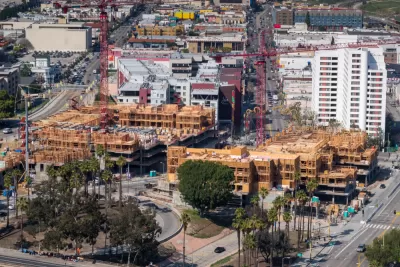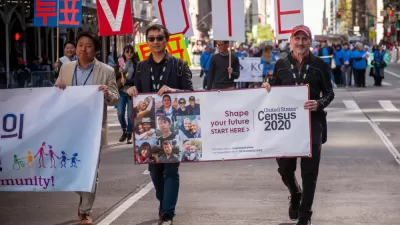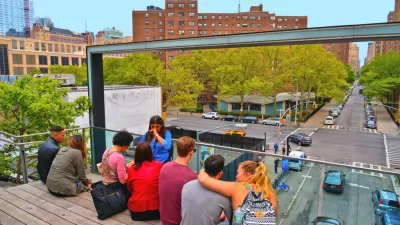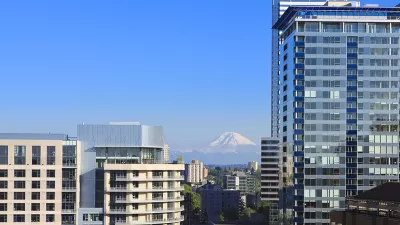The New York Times is calling 2010 to 2020 the "Downtown Decade."

"The recent 2020 census data confirmed earlier estimates that urban counties grew slower than suburban ones over the past decade," writes Jed Kolko. "But more detailed neighborhood census counts reveal that U.S. population density actually rose in the past decade after falling in the previous two decades, a result of faster growth in the most concentrated parts of urban counties."
The fastest-growing neighborhoods were located on the edges of metropolitan areas, explains Kolko. But many downtowns and central business districts grew quickly too. Adding up all the growth, "Americans were more likely to live in the highest-density urban neighborhoods in 2020 than in 1990, 2000 or 2010."
Kolko provides additional insight into the weighted-density measures for neighborhood-level Census data (which are "less skewed by unpopulated land area than conventional density measures," explains Kolko), such as the surprising number of U.S. cities thought of as car oriented appearing in the top 15 of densest cities in the United States (namely, Miami, San José, and Las Vegas).
FULL STORY: The Downtown Decade: U.S. Population Density Rose in the 2010s

Study: Maui’s Plan to Convert Vacation Rentals to Long-Term Housing Could Cause Nearly $1 Billion Economic Loss
The plan would reduce visitor accommodation by 25,% resulting in 1,900 jobs lost.

North Texas Transit Leaders Tout Benefits of TOD for Growing Region
At a summit focused on transit-oriented development, policymakers discussed how North Texas’ expanded light rail system can serve as a tool for economic growth.

Using Old Oil and Gas Wells for Green Energy Storage
Penn State researchers have found that repurposing abandoned oil and gas wells for geothermal-assisted compressed-air energy storage can boost efficiency, reduce environmental risks, and support clean energy and job transitions.

Private Donations Propel Early Restoration of Palisades Playground
Los Angeles has secured over $1.3 million in private funding to restore the Pacific Palisades playground months ahead of schedule, creating a modern, accessible space that supports community healing after recent wildfires.

From Blight to Benefit: Early Results From California’s Equitable Cleanup Program
The Equitable Community Revitalization Grant (ECRG) program is reshaping brownfield redevelopment by prioritizing projects in low-income and environmental justice communities, emphasizing equity, transparency, and community benefits.

Planting Relief: Tackling Las Vegas Heat One Tree at a Time
Nevada Plants, a Las Vegas-based nonprofit, is combating the city’s extreme urban heat by giving away trees to residents in underserved neighborhoods, promoting shade, sustainability, and community health.
Urban Design for Planners 1: Software Tools
This six-course series explores essential urban design concepts using open source software and equips planners with the tools they need to participate fully in the urban design process.
Planning for Universal Design
Learn the tools for implementing Universal Design in planning regulations.
Ascent Environmental
Borough of Carlisle
Institute for Housing and Urban Development Studies (IHS)
City of Grandview
Harvard GSD Executive Education
Toledo-Lucas County Plan Commissions
Salt Lake City
NYU Wagner Graduate School of Public Service





























